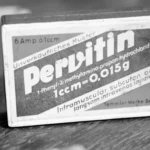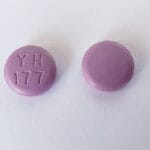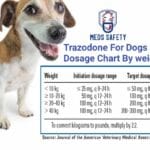Dive into the world of Desoxyn, a drug that continues to spark debate. This article aims to demystify Desoxyn, exploring its appearance, its role in treating ADHD, and the concerns surrounding its use. Let’s unravel the complexities of this intriguing medication, leaving no question unanswered.
Desoxyn Familiarly
You might know Desoxyn by its more commonly recognized name: methamphetamine. It’s a potent stimulant that doctors sometimes prescribe to treat Attention Deficit Hyperactivity Disorder (ADHD) in children six years and older. Before you let that raise any alarm bells, it’s crucial to understand that prescription Desoxyn is carefully controlled.
So, how does this drug work? Think of your brain as a bustling city with different areas responsible for specific functions. Desoxyn enters the picture and essentially tells the parts that manage attention and focus to “wake up!” It achieves this by potentially boosting the levels of certain chemicals in your brain, such as dopamine and norepinephrine, which are like messengers that facilitate communication between brain cells. For individuals grappling with ADHD, where these areas might be underperforming, Desoxyn could be a potential game-changer.
However, as with any powerful tool, there are potential downsides and risks associated with Desoxyn. Some individuals might experience side effects like dizziness, especially when they first start taking the medication. Others may notice changes in their mood, such as feeling unusually sad or more on edge than usual. In rare instances, some individuals have even reported thoughts of suicide. It’s incredibly important to speak to your doctor immediately if you encounter any of these experiences.
Due to these potential risks, doctors approach prescribing Desoxyn with significant caution. They will thoroughly inquire about any other health conditions you might have, such as heart problems or a history of mental illness. Additionally, they will carefully check to ensure Desoxyn won’t interact negatively with other medications you’re taking.
While Desoxyn may offer significant help for some individuals with ADHD, scientists are still actively studying its long-term effects. Some research suggests that extended use of Desoxyn could potentially lead to health problems down the line. For this reason, maintaining close contact with your doctor and undergoing regular check-ups while taking Desoxyn is crucial.
What is generic for Desoxyn?
While you may be familiar with the brand name Desoxyn, it also exists under a more general term: methamphetamine hydrochloride. Understandably, this might raise eyebrows. After all, methamphetamine is more commonly known as “meth,” a highly addictive and illegal substance. While it’s true that Desoxyn and methamphetamine share the same active ingredient, it’s crucial to understand the critical differences between the two.
Desoxyn is a prescription medication that doctors sometimes use to treat ADHD. It belongs to a class of drugs categorized as central nervous system stimulants. Stimulants like Desoxyn may work by increasing the levels of certain chemicals in the brain, namely dopamine and norepinephrine. This increase can potentially improve focus and attention, which is why Desoxyn may be considered for ADHD treatment.
However, Desoxyn is a medication that demands the utmost caution. It carries a high risk of misuse, addiction, and dependence. Due to this, the United States classifies it as a Schedule II controlled substance, indicating strict regulations surrounding its use. Doctors are understandably cautious about prescribing it, usually reserving it for situations where other ADHD treatments have proven ineffective.
It’s incredibly important to remember that despite sharing a chemical name, Desoxyn and methamphetamine are not interchangeable. Desoxyn is a carefully manufactured medication with precise dosages, while street meth is illicitly produced in unregulated labs and can be extremely dangerous.
Here’s a table summarizing the key points about Desoxyn:
| Feature | Description |
|---|---|
| Generic Name | Methamphetamine Hydrochloride |
| Brand Name | Desoxyn |
| Other Names | Methedrine, Desoxyephedrine |
| Drug Class | Central Nervous System Stimulant |
| Availability | Prescription Only |
| Controlled Substance | Schedule II (US) |
Always remember: If you have questions about ADHD or any medication, particularly Desoxyn, consult a healthcare professional for the most accurate and up-to-date information tailored to your specific situation.
What does the Desoxyn pill look like?
Since we’ve delved into what Desoxyn is, let’s discuss its physical appearance. Whether you’re a concerned parent or simply curious, knowing what to look for can be beneficial.
Imagine a small, white pill, oval in shape – similar to a Tic Tac but smaller. The 5mg version has “MET” and the number “5” imprinted on one side, while the other side reads “DESOXYN”. The 10mg version looks nearly identical, with “10” replacing the “5.”
It’s important to be able to identify Desoxyn because it’s a potent stimulant, containing methamphetamine in a controlled dose. While doctors carefully prescribe it, primarily for ADHD and occasionally for weight loss resistant to other treatments, its potency makes it susceptible to abuse and addiction. Recognizing the pill’s appearance can help you identify it, which could be critical in certain situations.
What drug is described under the brand name Desoxyn NYT?
It may come as a surprise that the brand name Desoxyn refers to a medication containing methamphetamine. However, before jumping to conclusions, it’s important to understand the nuances surrounding this drug. Unlike illicit methamphetamine, Desoxyn is an FDA-approved medication available only by prescription and has legitimate medical applications.
Think of it this way: electricity can power your home but can be dangerous if mishandled. Similarly, methamphetamine, when carefully controlled and administered by medical professionals, can serve as a treatment option for certain conditions.
Desoxyn, classified as a central nervous system stimulant, is primarily prescribed for ADHD. It influences the delicate balance of neurotransmitters in the brain—specifically dopamine and norepinephrine. These chemical messengers play a vital role in regulating attention, impulse control, and hyperactivity.
However, prescribing Desoxyn is not a decision taken lightly. Like many medications, it carries potential side effects. Some individuals might experience mood changes, dizziness, or negative interactions with other medications.
The crucial takeaway is this: Desoxyn is a powerful medication requiring strict medical supervision. Healthcare professionals carefully evaluate its use, weighing potential benefits and risks for each individual. It’s crucial to understand that Desoxyn is not a drug to be experimented with or obtained through any means other than a legitimate prescription from a licensed medical provider.
What are the prescription doses for Desoxyn?
When it comes to Desoxyn dosages, it’s crucial to remember that every individual is different. There’s no one-size-fits-all approach to medication. It’s about finding what works best for each person, much like finding the right pair of shoes.
Doctors typically initiate Desoxyn treatment at a low dose, around 5 mg, taken once or twice daily. They gradually increase the dosage, usually in increments of 5 mg every week, until they determine the optimal therapeutic dose for the individual. Think of it as fine-tuning a recipe—adding a little at a time until the flavor is just right.
The aim is to reach a daily dose effectively managing symptoms without causing unwanted side effects. While this sweet spot usually falls between 5 mg and 25 mg per day, individual responses can vary.
Staying in close communication with your doctor throughout this process is crucial. They will carefully monitor your response to the medication and make adjustments as needed, acting as your co-pilot on your treatment journey.
Desoxyn is typically a long-term medication, meaning you may require periodic dosage adjustments even after finding that initial sweet spot. Factors such as weight, metabolism, and other medications can influence how your body processes Desoxyn.
Keep in mind that this information is for general knowledge and should not replace medical advice. Always consult with your healthcare provider to discuss your unique medical needs and determine the most appropriate treatment plan.
What is the safest medication for ADHD?
Choosing the right ADHD medication is a significant decision, with safety being paramount. While Desoxyn (methamphetamine) is approved to treat moderate to severe ADHD, it’s not usually the first-line treatment.
While Desoxyn shares a similar level of effectiveness and safety with Adderall, it carries a higher risk of habit formation and dependence. Consequently, doctors tend to be more cautious when considering Desoxyn, particularly when safer alternatives are available.
When it comes to insurance coverage, commercial plans often cover Desoxyn. However, Medicare coverage might necessitate additional steps or approvals.
Like most medications, Desoxyn can cause side effects. Some individuals may experience an increase in blood pressure or heart rate or even palpitations (a feeling of the heart skipping a beat), similar to potential side effects of Adderall.
The field of ADHD medications is constantly evolving, with researchers tirelessly working to develop new treatments and deepen our understanding of existing ones. While Desoxyn has its place in managing ADHD, it’s essential to engage in open and honest conversations with your doctor. They can help you weigh the potential benefits against the risks and navigate you toward the safest and most effective treatment plan tailored to your individual needs.
Is Desoxyn Covered by Medicare?
Medicare coverage for Desoxyn can be a bit complicated. Since it’s a powerful medication with a higher potential for misuse compared to other ADHD drugs, it falls under the classification of a “Schedule II controlled substance.”
Medicare Part D typically helps cover prescription drugs, but Desoxyn is frequently excluded due to its Schedule II classification. However, it’s always wise to confirm coverage with your individual Medicare Part D plan, as there might be specific situations or exceptions.
Medicare Part B, which focuses on medical insurance, presents a more nuanced situation. Coverage for Desoxyn under Part B often depends on your specific plan. Reaching out directly to your Medicare plan provider is the best course of action to get the most up-to-date and personalized information.
While alternative ADHD medications like Jornay PM, Dyanavel XR, Ritalin LA, and Ritalin SR exist, their coverage under Medicare and other insurance plans can be limited. However, your doctor can guide you through these options and help determine the best fit for your circumstances.
It’s important to reiterate that while the FDA has approved Desoxyn for ADHD treatment, it’s not generally the first-line option. Doctors often favor other ADHD medications that carry a lower risk of misuse.
Like any medication, Desoxyn can have side effects, such as elevated blood pressure, a faster heartbeat, and palpitations. Always take medications exactly as prescribed and remain vigilant for any unusual reactions. If you experience any concerning side effects, consult your doctor immediately.
This information is intended for general knowledge and shouldn’t be considered medical advice. Always consult with your healthcare provider for personalized medical guidance.
What is the generic brand of Dexedrine?
If you’re looking for a more budget-friendly alternative to Dexedrine, there’s good news! Like many brand-name medications, Dexedrine has a generic equivalent, known as dextroamphetamine. Think of it like this: while “Dexedrine” is the widely recognized brand name (like “Kleenex” for tissues), “dextroamphetamine” is the more general term (like “facial tissue”).
Dextroamphetamine essentially acts as a boost for your brain by increasing certain brain chemicals, including dopamine and norepinephrine. These chemicals play a crucial role in attention, focus, and impulse control, which is why it’s often used to manage ADHD.
However, it’s important to note that dextroamphetamine is a potent medication, categorized as a “central nervous system stimulant.” As with any stimulant, side effects are possible. Some individuals might experience an increased heart rate, feel slightly jittery or anxious, or have trouble sleeping. Others might encounter an upset stomach or changes in appetite.
Importantly, dextroamphetamine is classified as a Schedule II controlled substance due to its potential for misuse or dependence, meaning it’s tightly regulated.
If your doctor has prescribed Dexedrine or its generic form, dextroamphetamine, taking it precisely as directed is crucial. Avoid altering the dosage – more is not better, and less might not be effective. Additionally, steer clear of mixing it with alcohol or other drugs, as it can lead to serious complications.
Remember, your doctor is your most valuable resource regarding your medications. If you have any questions or concerns about Dexedrine or dextroamphetamine, don’t hesitate to reach out to them.
What is the generic drug for ADHD?
Many might not realize that Desoxyn (methamphetamine) has a generic counterpart: Methamphetamine Hydrochloride. Let’s clarify what this means.
Similar to how Tylenol is a brand name for acetaminophen, Desoxyn is a brand name for methamphetamine. Therefore, when we discuss generic Methamphetamine Hydrochloride, we’re referring to a medication containing the same active ingredient as Desoxyn but sold under a less recognizable, generic name.
Imagine it like this: you could purchase designer jeans or jeans from a department store. Both are jeans, made from similar materials, and serve the same purpose. The designer pair might boast a fancier label and a higher price tag, but fundamentally, they are the same product.
People often opt for the generic version over brand-name Desoxyn due to the lower cost. Generic medications typically have a more affordable price because they don’t carry the added marketing and development expenditures associated with their brand-name counterparts.
However, it’s vital to remember that both Desoxyn and Methamphetamine Hydrochloride are potent medications. These aren’t your typical everyday ADHD treatments like Adderall or Ritalin. Desoxyn, classified as a Schedule II controlled substance, carries a high potential for misuse and addiction.
Doctors generally reserve Desoxyn for specific cases when other ADHD treatments haven’t been successful or are unsuitable for the patient.
Let’s break down the key differences in this table:
| Feature | Desoxyn | Generic Methamphetamine Hydrochloride |
|---|---|---|
| Active Ingredient | Methamphetamine | Methamphetamine |
| Brand Name | Yes | No |
| Cost | Typically higher | Typically lower |
| Controlled Substance Status | Schedule II | Schedule II |
| Use | Treatment of ADHD in specific cases | Treatment of ADHD in specific cases |
A Word of Caution
It’s important to emphasize that while both Desoxyn and its generic form may be effective in managing ADHD symptoms, they come with a distinct set of potential side effects. These can include an increased heart rate, elevated blood pressure, and even mood changes.
Because of these inherent risks, it’s absolutely crucial to use these medications only under the close supervision of a healthcare professional. Self-treating with any form of methamphetamine is extremely dangerous and could have severe consequences for your health.
The Research Landscape
Using methamphetamine in any form to treat ADHD is a complex topic with ongoing research. While some studies demonstrate its effectiveness in specific cases, scientists are actively working to understand its long-term effects and potential risks fully.
Some experts believe that more research is necessary to determine the most appropriate situations for prescribing Desoxyn or its generic form, while others are exploring better ways to minimize the potential for misuse and addiction.
The Bottom Line
Generic Methamphetamine Hydrochloride exists as a less expensive alternative to the brand-name Desoxyn. However, it’s crucial to reiterate that both medications contain the same potent active ingredient and should only be used under strict medical guidance. If you’re struggling with ADHD, have a conversation with your doctor about all treatment options to determine the safest and most effective approach for your individual needs.
What is another Name for Azstarys?
While we’ve been referring to it as Azstarys, this medication also goes by another name: serdexmethylphenidate. Think of “Azstarys” as the brand name and “serdexmethylphenidate” as its more technical, scientific name.
You might wonder why this matters. Sometimes, doctors and pharmacists use the generic name, serdexmethylphenidate, particularly when discussing different versions or formulations of the drug. While it can seem a bit confusing, remembering this fact can help you keep things clear.
What is the generic Name for methylphenidate ADHD medication?
Many medications used to manage ADHD rely on methylphenidate as their primary ingredient. In essence, methylphenidate is the key player, packaged and presented in various ways. However, regardless of its form, it’s the same active ingredient at work.
Think of “generic” as the plain and straightforward name for something. For example, you might call a rose simply a “flower.” The generic name for methylphenidate, the one you’d find in official documentation, is methylphenidate hydrochloride.
Companies often give methylphenidate catchier, easier-to-remember brand names. You’ve likely heard of some of these brand names, such as Ritalin, Concerta, and Metadate ER. While they may differ in appearance, dosage form (pills or capsules), or even the time of day they’re taken, they all share methylphenidate as their core active ingredient.
Here’s a simple comparison:
| Generic Name | Brand Names |
|---|---|
| Methylphenidate Hydrochloride | Ritalin, Concerta, Metadate ER |
It’s comparable to ordering a coffee. Whether you choose a cappuccino, a latte, or a macchiato, they all share one crucial ingredient: espresso. Similarly, different brand names of ADHD medication can contain the same active ingredient.
Understanding the distinction between generic and brand names can be helpful when speaking with healthcare professionals about you or your loved one’s medication. Additionally, the generic version is often easier on the wallet, which is always a plus.
A final reminder: Always consult with your doctor before making any changes to your medication regimen!
Looking for an in-depth exploration of the use of methamphetamine during World War II? Methamphetamine use in World War II provides a comprehensive analysis of this fascinating topic.
For a comprehensive history of the evolution of ADHD treatments, be sure to check out Evolution of ADHD treatments. This article delves into the fascinating journey of these treatments over the years.
- Sept 31 Myth: Unveiling Calendar Secrets - March 18, 2025
- How Long & Till December 18, 2025: Accurate Countdown Guide - March 18, 2025
- Discover Japanese Artists: A Complete History - March 18, 2025

















2 thoughts on “Unmasking Desoxyn: A Look at the Controversial Drug and Its Familiar Effects”
Comments are closed.